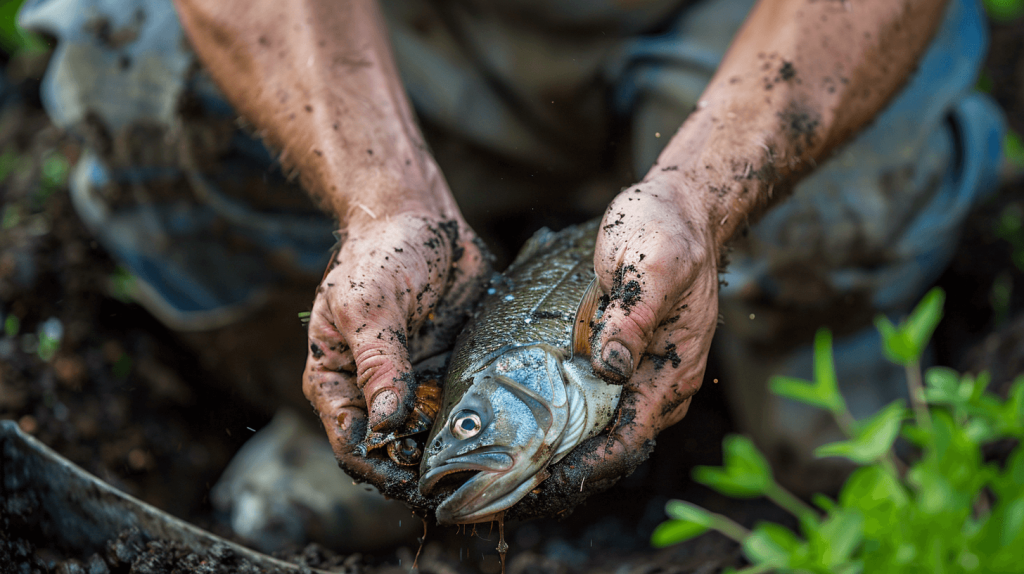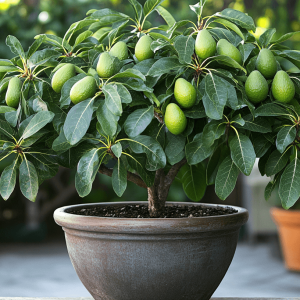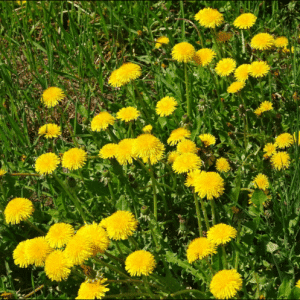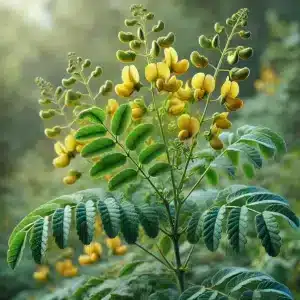
Using fish scraps in your garden is an excellent way to create a nutrient-rich environment for your plants. Here are four effective methods to utilize fish heads, bones, and other scraps for natural fertilization:

1. Direct Burying
Simple and Direct Nutrient Boost
- Steps:
- Collect unseasoned fish heads, bones, and scraps.
- Dig a trench or hole about 6-8 inches deep in your garden.
- Place the fish scraps in the trench and cover with soil.
- Plant your seeds or seedlings above the buried fish.
- Benefits: The decomposing fish provides a slow-release fertilizer, rich in nitrogen, phosphorus, and calcium.
2. Fish Emulsion
Create a Potent Liquid Fertilizer
- Steps:
- Collect fish scraps and place them in a large container.
- Add water to cover the fish scraps and seal the container.
- Let the mixture ferment for several weeks, stirring occasionally.
- Dilute the fish emulsion with water (1:5 ratio) before applying to plants.
- Benefits: Fish emulsion acts as a powerful liquid fertilizer that can be easily absorbed by plant roots, promoting rapid growth and vitality.

3. Composting
Enrich Your Compost Pile
- Steps:
- Add fish scraps to your compost bin.
- Balance the high nitrogen content with carbon-rich materials like leaves and straw.
- Turn the compost regularly to aerate and speed up decomposition.
- Benefits: Fish scraps boost the nitrogen levels in your compost, enhancing microbial activity and accelerating the breakdown of organic matter into nutrient-rich compost.
4. Fish Hydrolysate
A Commercial-Grade Fertilizer at Home
- Steps:
- Blend fish scraps with water until smooth.
- Add molasses to the mixture and let it ferment for a few weeks.
- Strain the mixture to remove solids.
- Dilute with water (1:5 ratio) and apply to your garden.
- Benefits: Fish hydrolysate provides a comprehensive nutrient profile, including amino acids, vitamins, and trace minerals, promoting robust plant health.

Additional Tips for Success:
- Avoid Overuse: Use fish scraps sparingly to prevent soil nutrient imbalances.
- Pest Control: Ensure scraps are well-buried to avoid attracting animals.
- Composting Balance: Maintain a proper carbon-to-nitrogen ratio in your compost.
Using fish scraps in these ways not only recycles kitchen waste but also enriches your garden soil naturally, leading to healthier and more productive plants. Embrace these sustainable practices and watch your garden thrive!






